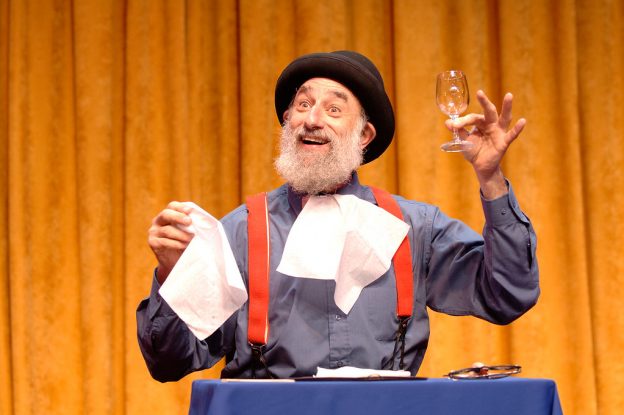It’s January, and we know what that means – the London International Mime Festival is back with another wonderful array of ‘image-rich performance for an adventurous and curious audience’. Dorothy Max Prior reflects on the 2021 programme
London International Mime Festival is the longest established international theatre festival in the country. Founder and co-director Joseph Seelig has repeated this claim often, and ‘nobody has ever contradicted me,’ he says – so it must be true!
LIMF is most certainly an institution – calendars marked annually for this eagerly anticipated London-wide event that brings together an extraordinarily varied range of physical and visual theatre shows, workshops and screenings, presented in venues across London throughout the month of January.
This year, for very obvious reasons, there are changes. Joseph and co-director Helen Lannaghan took the decision mid-2020 that LIMF 2021 would run online. At the time the decision was taken, lockdowns were easing and there was talk of theatres re-opening – but the wise directors knew that it would be better to make a call that would mean an online programme could be properly curated and delivered, regardless, rather than risk a live programme which would need to be hastily re-arranged at the last minute if the situation worsened. Which it has.
Apart from anything else, how can you issue proper invitations to international artists to come to the UK to present work when you can’t get out of the UK to see their work, and you have no idea if the artists would be able to travel in to the UK? Quite apart from Covid-19 restrictions, there was the fact that the 2021 edition of the festival would come to town mere weeks after Brexit, with the risk that the situation on international visas, work permits and carnets for artists would be unresolved. Which it is.
But let’s accentuate the positive. Eliminate the negative. Latch on to the affirmative. (Thank you, Johnny Mercer.)
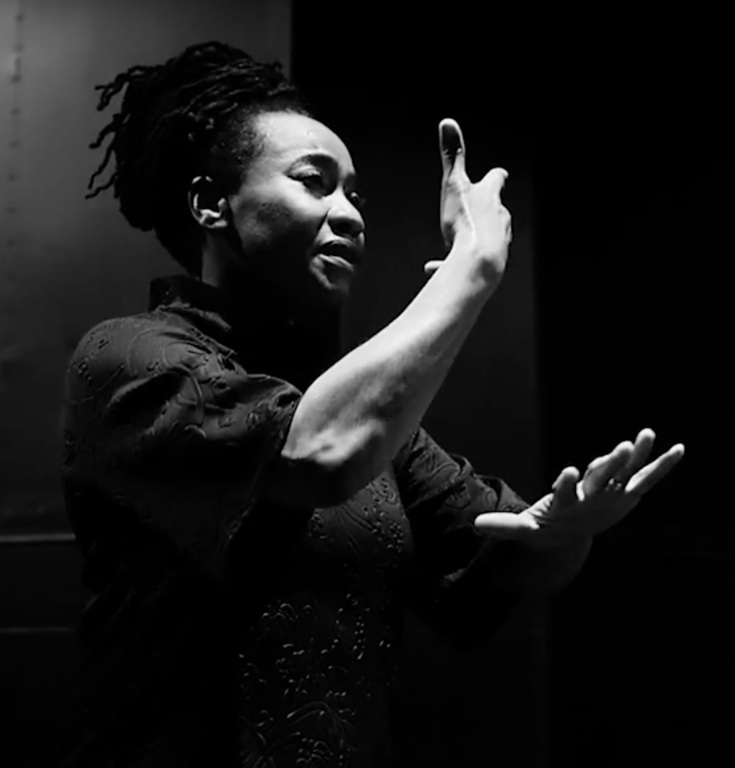
With activity switched online, LIMF 2021 is offering a series of five new short films, a videotheque of documented shows by renowned artists, a truly outstanding package of workshops led by top industry professionals, plus a series of ten talks by distinguished Mime Festival participants from recent years, delivered digitally.
Starting with those film commissions: what a brilliant decision this was! Mime, clown and physical performance has always had a symbiotic relationship with film – from Charlie Chaplin and Buster Keaton’s silent classics, through to the legendary Les Enfants du Paradis (starring one of the godfathers of mime, Jean-Louis Barrault), and onto Jacques Tati and beyond. Then, there’s the noble tradition of filmed puppetry and object animation, with a particular nod to the Czech innovators, including Jiří Trnka and Jan Švankmajer.
It feels right and fitting, therefore, for LIMF to commission contemporary physical and visual artists to make their own word-free works. Of the five free-to-view short films, four were created especially for the festival during lockdown. The four commissions are: movement director/performer Andrew Dawson; puppeteer/animator Gavin Glover; multimedia artists Kristin & Davy McGuire; and movement director, actor and War Horse choreographer Toby Sedgwick.
Additionally, there’s Jacqui Beckford’s British Sign Language interpreted version of Little Jimmy Scott singing Nothing Compares 2U from Kiss & Cry (Barbican, LIMF 2017). And what a gem this is – proving, if we didn’t know it already, that BSL is a beautiful physical performance mode in its own right, especially when in the hands (and arms, and face, and body) of an artist as expressive and communicative as Jacqui Beckford. It’s a dance of love, nothing less.
Gavin Glover’s Bleak House is as darkly demented a piece of work as you’d expect from the former co-director of Faulty Optic Theatre of Animation. Scenes of domestic discord are played out, with miniature three-piece-suites and shaking fridges moved around by ominous giant woolly-gloved hands, or dragged along desolate corridors – particularly disturbing is a fast-moving little cot tied to a length of string. All augmented by an excellent soundtrack from sound designer and Foley artist David Moré, scratches and screeches vying with the discordant tones of an old fairground organ.
In Toby Sedgwick is Bernard Knowles, we encounter Sedgwick in Commedia half-mask as the wonderfully eccentric naif Knowles – a ‘personal play on the play of life’ that sees him dancing around his garden with a mannequin that falls apart in his arms, playing musical saw, coaxing some vintage jazz from his wind-up gramophone, or flirting with flowerpots. It’s shot and edited beautifully – the piece is created with filmmaker Genevieve Stevenson and features a vintage Kodacolour home-movie aesthetic, with a colour palette of gorgeous faded rose pinks and golden yellows, and lots of flickering Super-8. ‘We do diddly do what we must muddly must’ sings Toby/Bernard as he revs up his ancient motorbike and rides off into the sunset…
In complete contrast, Kristin & Davy McGuire’s dance-to-camera piece Vertigo gives us an ultra-slick duet between digital technology and the physical body; a pole-dance performance paired with projections onto gauze, the holographic projection becoming the dancer’s partner. Giddying physical skills!
That just leaves Andrew Dawson’s intriguingly titled We live by unconsciously measuring the inverse distances of our proximity, inspired by the words of poet David Whyte. Andrew Dawson, working with his filmmaker son Roman Sheppard Dawson and composer Jonny Pilcher, ‘set out to develop a visual poem, as we searched for what is intrinsic in our relationship with others…’ Filmed in a park close to Dawson’s London home, and using a split-screen format that lovingly frames the waving branches of the trees and Dawson’s undulating hands, the piece is indeed a visual poem – a dance with nature, and an exploration of the liminal space between things.
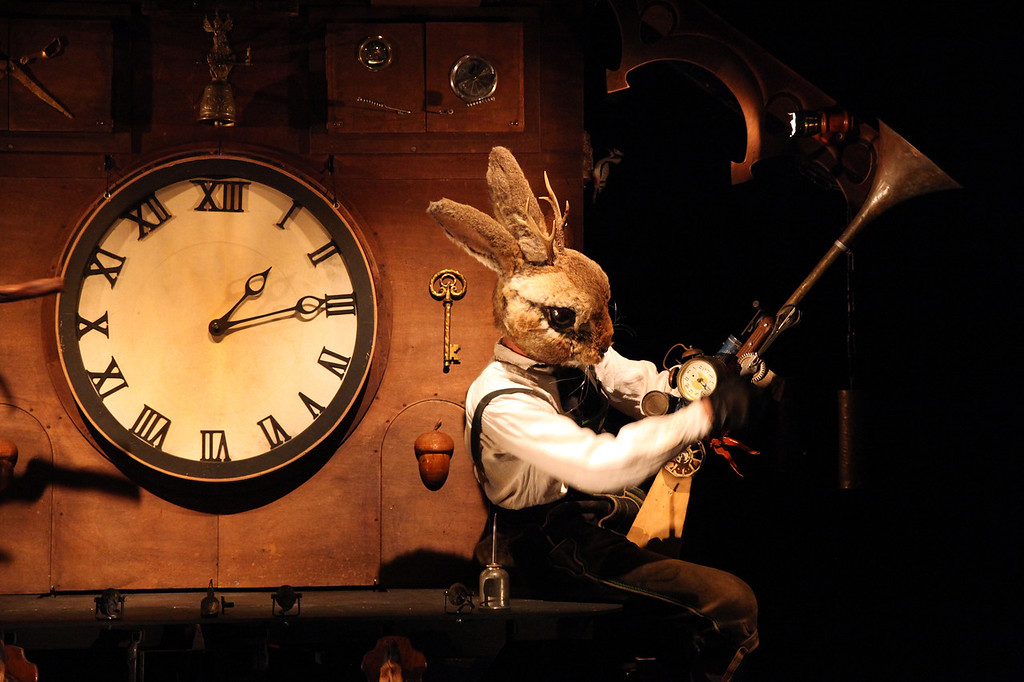
Also onscreen: the Festival’s videotheque programme, whilst not intending to replace the experience of real live theatre, gives audiences the chance to catch previous Mime Festival shows they might have missed, or to see much-loved favourites again. Divided into three batches representing the last three decades – they feel that work from the first two decades of LIMF can’t be adequately done justice by the poor quality of filmed documentation from those years – the impressive list includes Compagnie Philippe Genty, Josef Nadj, Mossoux Bonté, Akhe Theatre of Engineering, Ockham’s Razor, Les Antliaclastes, and Thick & Tight, amongst many others.
One of the most renowned of all LIMF presentations, Peeping Tom’s 32 rue Vandenbranden (a 2015 Olivier Award Winner), and the company’s later shows Mother and Father, will be available for three nights over the weekends 22-24 January and 29-31 January.
Phew – that’ll keep us all busy for the rest of January!
The programme of ten artist talks – which includes juggling supremo Sean Gandini in conversation with Thomas Wilson, Gecko’s Amit Lahav in conversation with Hoipolloi’s Shôn Dale-Jones, and Told By an Idiot’s Paul Hunter in conversation with himself – kicks off on the festival launch night, 18 January, with Mime Festival founders Joseph Seelig and Nola Rae talking about 1977 and All That. Expect reminiscences on the legendary Friends Roadshow and working with Marcel Marceau, musings on the merits of structured chaos and the importance of international collaboration, the Festival’s rise from the Cockpit to the Barbican via the ICA, and the magnificent success of its workshop programmes – always a vital part of the LIMF programme, from its humble beginnings to the present day.
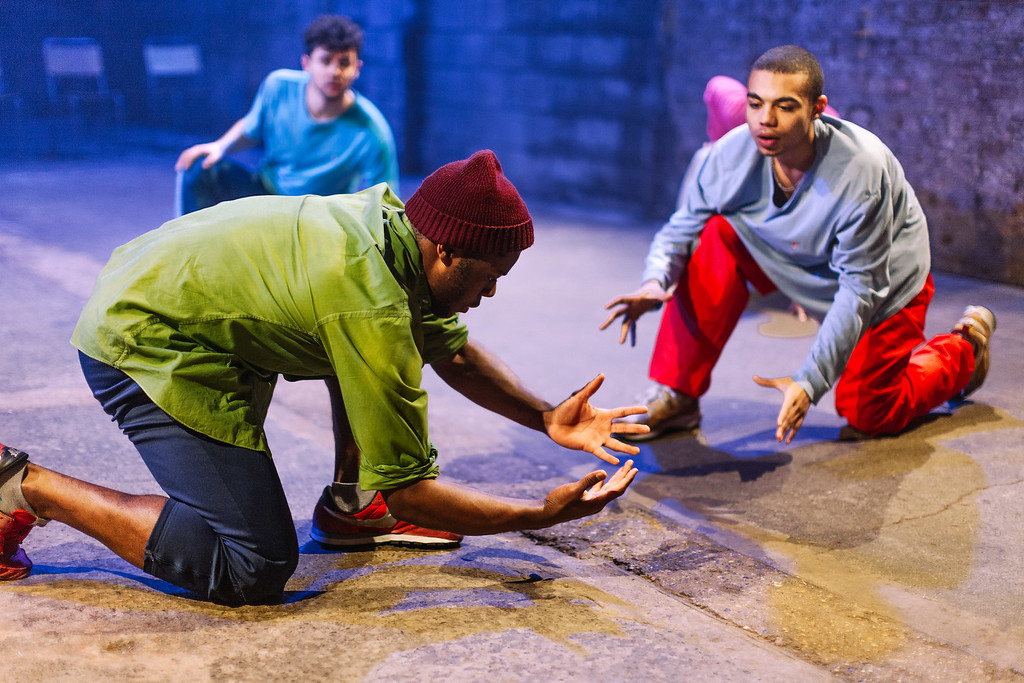
Talking of which: the workshops in the 2021 programme include offerings by many dearly beloved LIMF regulars, including a magnificent posse of clowns and mimes: Nola Rae invites you to Upgrade Your Clown; Avner Eisenberg leads An Introduction to Eccentric Performing; and Les Bubb offers Playing with the Invisible – A Crash Course in Mime.
Then, there’s Theatre Re’s corporeal mime-based Falling Man; The PappyShow’s How We Play and Move; and David Glass Ensemble Learning’s Devised and Physical Object Theatre. Told by an Idiot’s weekend workshop will explore Building the Chaos; and Mark Down of Blind Summit offers two different workshops, a one-day How to do Puppetry Home Alone; and a five-day What’s So Special About Zoom – An investigation into the possibilities of puppetry on live internet platforms. All of these workshops are taught online, and all are sold out, with waiting lists.
‘We have students joining from all around the world,’ says Helen Lannaghan, ‘Belgium, Canada, Canary Islands, China, France, Germany, Greece, Hungary, Italy, Netherlands, Portugal, Renunion, Spain, Switzerland, USA and the UK. Really rather marvellous and a feature we shall keep, going forwards.’
So, workshops, talks, commissioned short films, and the wonderful archive material of the three videotheque programmes – that’s the fantastic array of work on offer at LIMF this year.
But what will be happening in the future? Helen again:
‘We’re waiting to hear what the implications of Brexit will be on our ability to present international work from January 2022. We’re also waiting to hear from our venue partners how their re-opening plans might affect our programming – at the moment, realistically, it’s just too early to be able to plan for live performances with any certainty, but we will push forwards in whatever way we can. The bottom line is that we’re supporting the creation of new work by ten British companies which we hope will help carry them forwards. We also hope we’ll be able to programme much of that new work in LIMF 2022.’
The new commissions Helen mentions will include work by Nikki Rummer, Dik Downey’s Opposable Thumb, Theatre Re, The PappyShow, and Thick & Tight.
Finally, on the eve of the the launch of its 44th edition, here’s a last word from Joseph Seelig on LIMF past, present and future:
‘Those early years now seem so risky and chaotic. I’m sure they were. But it was great fun, an endless journey of exploration discovering extraordinary artists and work so different from mainstream theatre. I never dreamed that the Festival would become an institution, still gathering new followers year after year. I can’t tell you how proud that makes me. Long live LIMF!’
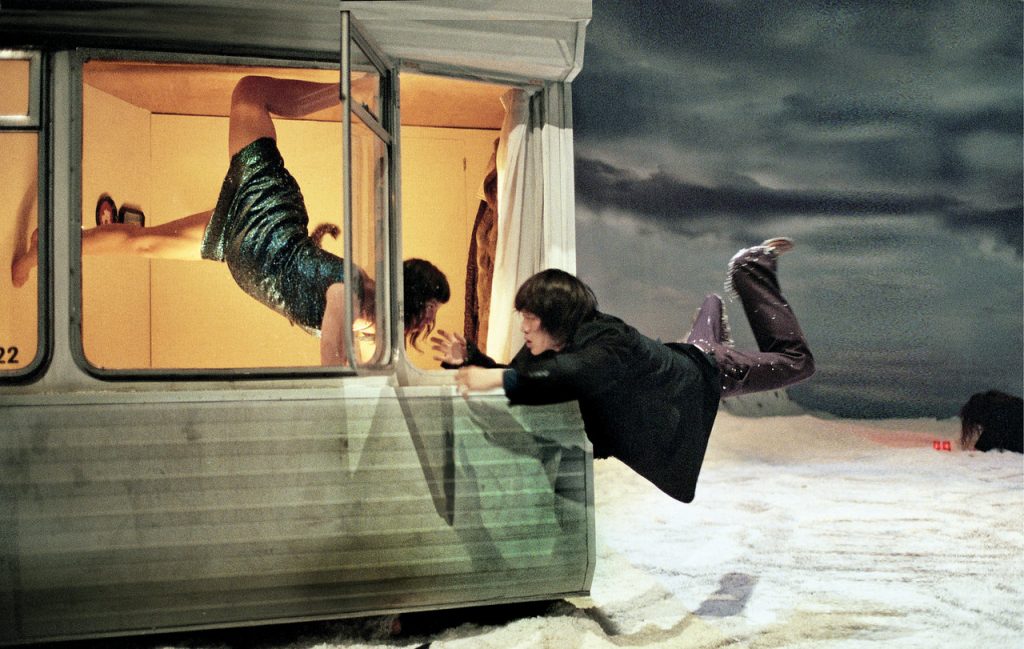
Featured image (top); LIMF 2021 workshop leader Avner Eisenberg aka Avner the Eccentric.
LIMF 2021 runs online 18–31 January. For full details of the programme and information on how to book talks and access the free online film screenings and videotheque content, see https://mimelondon.com/

